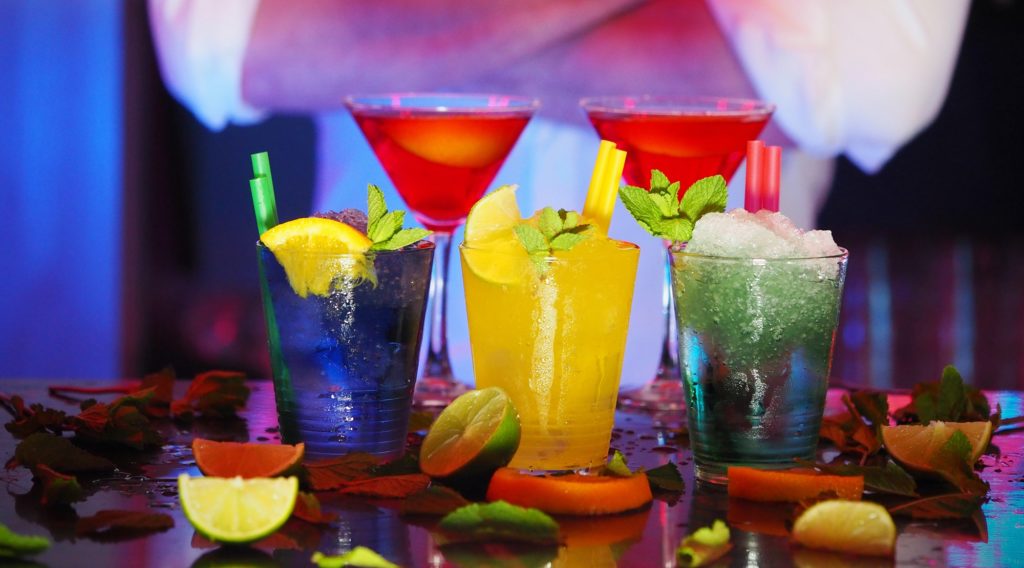

To educate the members of the union and the public at large, The Jamaica Union of Bartenders and Mixologists (JUBAM), led by President Debbian Spence-Minott, and to kick off the first-ever bartender week, hosted a webinar on March 7, where stakeholders discussed how to build a better bar and beverage community.
To preface her presentation on the trends and observations from the bar community, Dr Spence-Minott noted that, “as bartenders, as sellers and servers of alcohol, we have to be responsible in how we prepare our drinks for our consumers”.
It was an enriching panel discussion with members of the tourism industry, alcohol purveyors and government entities, including Christopher Gentles, general manager of the Spirits Pool Association; Larry Watson, president of Jamaica Chamber of Commerce (JCC); Carol Rose-Brown, director, Jamaica Centre of Tourism Innovation, Craft Development Institute at the Tourism Enhancement Fund, an agency of the Ministry of Tourism; Tannika White, a representative from JWN Academy, and Harold Davis, deputy chief executive officer at the Jamaica Business Development Corporation (JBDC).
RAISING THE STANDARD THROUGH EDUCATION
Open to the public, bartenders and mixologists tuned in to listen and share their input.
To start the panel, Spence-Minott explained that the goal of JUBAM is ultimately to keep raising the standard through education.
Watson gave a little history of how the drinking culture has evolved over the centuries, to how far Jamaica has come regarding drinking.
“In 2019 and 2023, Jamaica will have over four million visitors coming to Jamaica. If Jamaica didn’t serve alcohol, how many visitors would we have? The perspective of the importance of responsible drinking and alcohol is so critical,” he stressed.
Maurice Chung, president of the JUBAM Bartender Council, chimed into the discussion, explaining that local establishments must also be aware of the psychological effect on bartenders when someone leaves the bar to drink and drive.
Chung focused on the importance of bar owners supporting their bartenders who cut off a drunk driver.
White led the discussion with a presentation about responsible service and consumption. She added that the role of the bartender is the prime individual for mixing, serving, and pouring, among other functions. She detailed further the bartender’s monitoring role in ensuring the safety of customers, which includes responsible pouring and an understanding of industry standards for various spirits.
“Everyone has a different threshold to alcohol.”
Tannika White, a representative from JWN Academy
White outlined the crucial understanding of the stages of alcohol intoxication.
“In the green stage, the consumer is relaxed and aware. In the yellow stage, the consumer exhibits behaviour that is different from how they typically act. The red stage is the danger zone. There is a delay in response, and hand, eye and muscular coordination are also affected,” she said.
“There are several reasons why a person consumes alcohol. Some people who are not in celebration mode might indulge in alcohol… When you’re depressed, it will affect you differently. When you’re on medication, your body reacts differently to alcohol… Everyone has a different threshold to alcohol,” she added when expounding on all the considerations bartenders need to be made aware of.
PURPOSE OF A BAR IS TO DESTRESS
In summary, Watson discussed the importance of the bar and beverage community, saying: “In Jamaica, the count is around 11,000 bars. The purpose of a bar is to destress. It’s a very important place for them to relax. You don’t relax overindulgence, but with moderate consumption of alcohol. So many great bands of the world crafted their skills in a relaxed environment such as a bar. The bar serves a community focus. The UK has 50,000 pubs. As a part of their culture, they will stop at a pub to meet their friends and then go home to their family. To ensure the industry succeeds and prospers, the bar owners and bartenders have to understand the new reality is using rum and beverages to get a nice feeling-not overindulging.”
Rose-Brown, director of the Jamaica Centre of Tourism Innovation (JCTI), Craft Development Institute, shared her organisation’s five-pillar strategy policy and commitments to the education of bartenders. Rose-Brown added that professional certification is critical to the industry.

“Things have changed after the coronavirus, and we now have more demanding customers. Tourism is also benefiting from the construction of new hotels. The development of new accommodations provides critical challenges for staffing. One of the things an attraction must have is an attractive bartender. That is where a lot of the marketing goes on. These hotels need bartenders of that level and quality,” said Rose-Brown.
The Jamaica Centre of Tourism Innovation is working with the J.Wray and Nephew Academy, NCTVET, and HEART to facilitate bartenders’ continued professional certification and business understanding. Dr Spence-Minott opined that consideration is given by widening the pool to accommodate other institutions, such as The Academy of Bartending, and Spirits & Wines, given the high calibre graduates they produce.
Davis said the JBDC is passionate about providing business development support for the bar industry.
The JBDC is a government-owned entity responsible for micro, small and medium-sized businesses. It provides various development services for SMEs to move companies from point ‘a’ to point ‘b’.

“To do that, we have to partner with a number of critical organisations to make sure that not only the message gets out but to make sure we can in fact deliver on our mandate. For us, we believe that the critical part of the organisation’s business sector is micro and small businesses for Jamaica,” said Davis.
“The bar sector is a critical industry for us. It falls in the tourism sector and is one of those defining brands in Jamaica,” he added.
Spence-Minott concluded the webinar by advocating for the support of human capital in the industry- bartenders.
“Give the bartenders a basic health policy, something they can rely on,” she said.
“They stand on their feet for eight hours a day,” she added.
Spence-Minott asserted that the salaries are insufficient to care for medical needs.







Comments